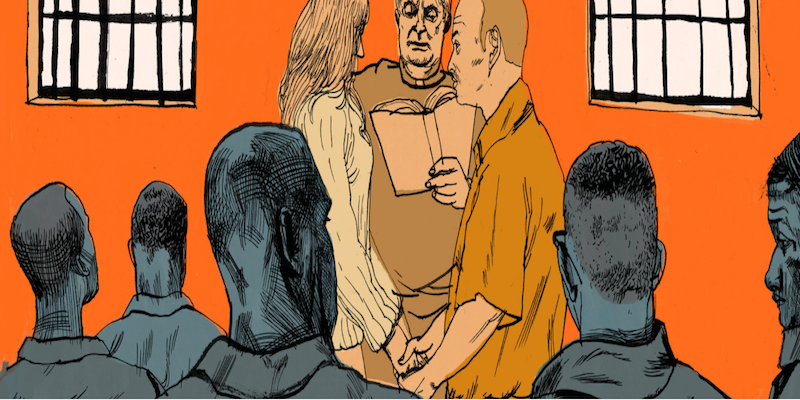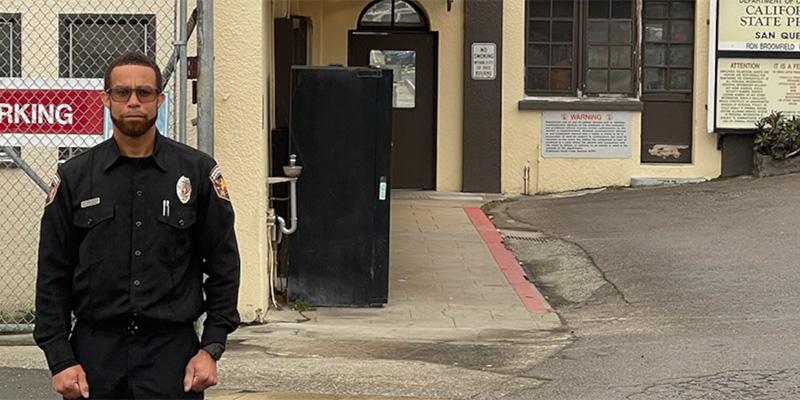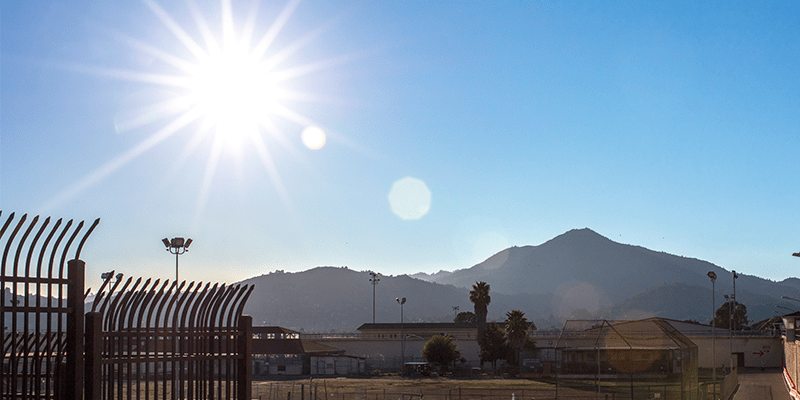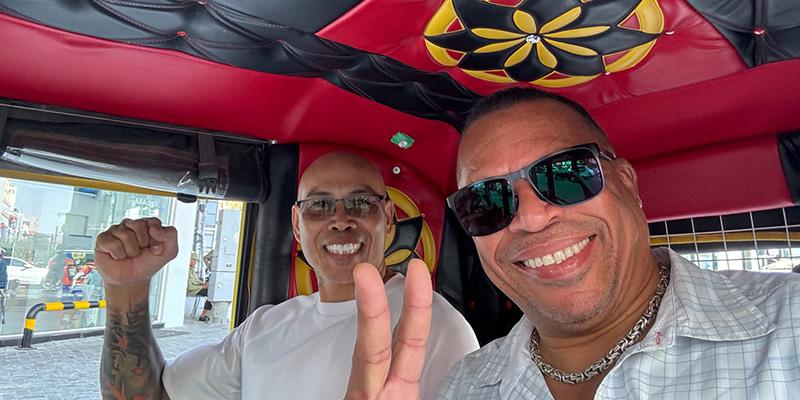The first and only wedding I ever attended was in prison, when an inmate I knew only in passing invited me to serve as his best man.
Why would this virtual stranger invite me into one of the most personal moments of his life? Instinctively, I knew that his asking me suggested more about the walls inmates set up around our private lives than it did about any personal relationship I had with him. The truth is, Dee (at the time I only knew his nickname), was looking for someone who wouldn’t embarrass him in front of his family. Someone who wouldn’t talk about prison stuff all day — like who is snitching, or who owes who, or how corrupt the system is.
In fact, here in prison, family is off-limits. Many incarcerated men, when they receive mail, immediately rip off the return address and flush it down the toilet. If you see someone on the phone, the unspoken rule is that you never approach them for any reason. If you see someone you know in the visiting room, you should wait for them to make eye contact with you to see if it’s acceptable for you to approach, because they are in the presence of their family. It doesn’t matter if this is a prisoner you’ve known for 20 years. Family is off-limits.
So prison becomes a strange blend of intimacy and emotional distance. When you share a four-by-eight cell with a person, you get to know him pretty well, but only in certain ways. My cellie likes to get up about 4:30 a.m. to read while the building is still quiet; he’s passionate about politics — our most heated argument came when I made a dismissive remark about Bernie Sanders. He loves grilled-cheese sandwiches with ice-cold milk.
What I can’t tell you is if he has kids. Or if his parents are still alive.
When I arrived at Dee’s wedding, I was immediately overwhelmed — the smell of cologne in the visiting room was overpowering. The hundreds of incarcerated men in the small space had clearly attempted to drown out the stale prison odor.
The visiting room itself was bracingly loud with the squeal of children, and the joyful, foreign sound of women’s laughter.
I carefully stepped to where Dee and his family were seated.
I’d seen Dee plenty of times in the yard, but we ran in different circles and had never really conversed. He was in his mid-20s but didn’t carry himself like a lot of the other youngsters. Perhaps it was his slender build, or his state-issued glasses with the black plastic frames, or the way he always seemed to be headed somewhere.
But at the wedding, within minutes, I was learning that Dee is actually Daniel. He has a little sister who will begin her first semester of college very soon. She’s interested in social activism. Her love for her brother was clearly capable of trumping her fear of being in a prison for the first time. She adoringly caressed his hair.
And Daniel: gone was the weary, wary look and the body language that is universal to the incarcerated male. In its place was an attentive, respectful demeanor that left no doubt his mom ran a tight ship. He was polite and humble, and his eyes shone a light that you never really see in prison.
Suddenly, I realized that around the visiting room, that same, rare light was everywhere: genuine smiles, open expressions, intimacy.
The wedding itself was brief. I expected a state bureaucrat with a certain grudging efficiency, the type who is impatient with anyone who doesn’t already know the routine, to lead the ceremony with one eye on the clock. Instead, a retired military chaplain came in and within moments said something that blew me away.
“I can tell that you two really love each other,” he said, with a kind smile.
Most state employees, or free people who come into prison, can’t see past our state-issued uniforms. They rarely look us in the eye, and usually don’t say anything to us at all.
But this chaplain hung out with us as we took pictures, ate microwaved buffalo wings from the vending machine, and laughed and joked as we did. And not once was there a disapproving glance at the bride-to-be for marrying an incarcerated man.
Occasionally, as the couple said their vows, one of the incarcerated men in the room would see me gazing his way, and immediately his walls would snap back into place.
What exactly are we so on guard against, I thought? Was it that soon enough someone would be sympathizing with you, and then demanding that you help them out with a few things, like commissary? By now, didn’t we know that each of us was basically alike, a person just trying to get through the day so that one day we can get home to our family?
But that final level of trust eludes us.
As Daniel and I re-entered the yard after his marriage, he lightly touched my arm to get my attention, then looked me straight in the eyes. “Thank you,” he said. I wanted to tell him that he had given me a far greater gift than I had given him. But as I searched for the words, I felt the prison environment washing back over me.
“It was nothing,” I replied.












